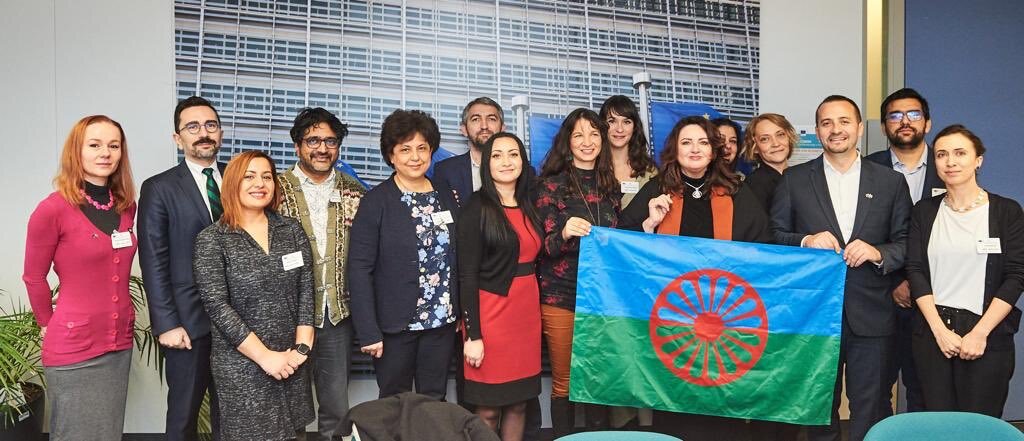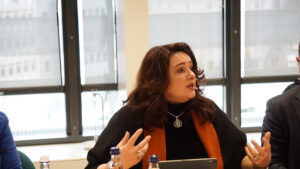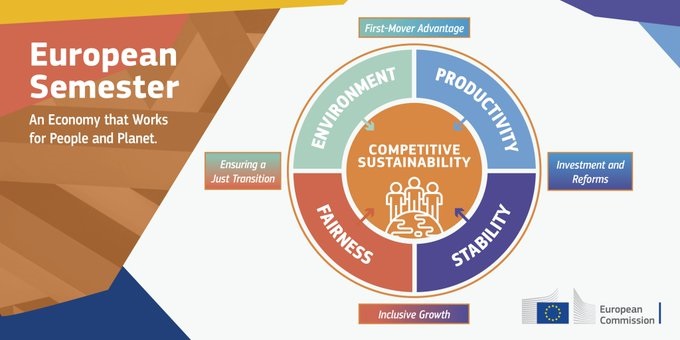European Commission releases Autumn Package
What’s in it for Europe’s Roma?
On 17 December 2019, the European Commission published the so-called Autumn Package, including the Annual Sustainable Growth Strategy 2020 and its annex, the draft Joint Employment Report, thus marking the beginning of the 2020 European Semester.
In a clear attempt to revamp the cycle, the document has been renamed Strategy (from Survey) and includes the additional word Sustainable. However, disappointingly, the word Social was not added to the title, despite repeated calls of civil society to that effect. On a more positive note, the previous definition of the European Semester recommended it as a mechanism for economic policy coordination, whereas now it looks at both economic and employment policies. This mirrors the structure of the Integrated Guidelines and brings some hope that social concerns (currently dealt with in Guideline 8 of the Employment Guidelines) are officially taken on board in the process. The document equally indicates that the Sustainable Development Goals (SDGs) and the European Pillar of Social Rights (EPSR) are delivered through the European Semester, and that these initiatives will be the object of dedicated, separate sections (and annexes) of the upcoming Country Reports (Winter Package). However, no explicit mention is made of the Europe 2020 Strategy, or its potential successor.
ERGO Network warmly welcomes the explicit mention of the European Roma the Annual Sustainable Growth Strategy, where they are highlighted as one of the groups most at risk of exclusion and inequality (page 6), however laments that this preoccupation is not underpinned by a desire to improve quality of life and respect human dignity, but so that the Roma can better serve the economy. Other measures contained have the potential of being positive for Roma communities, hinging on the right implementation: warnings against energy poverty, an appeal for fair wages and open-ended contracts, supporting adequate social protection systems (regardless of employment status), investment in quality and inclusive education. Disappointingly, nothing is said about combating discrimination and ensuring equal opportunities, nor about access on behalf of vulnerable groups to essential services, such as housing and healthcare.
In what concerns the Joint Employment Report, the Roma are exclusively mentioned in the context of inclusive and desegregated education (pages 46, 76). This is a much appreciated focus, particularly as it also refers to obstacles to education attainment and completion such as severe poverty and housing exclusion. The Report reminds that “school-leaving rates of Roma are with 70% significantly higher than for other categories of pupils”, and stresses the importance of desegregation, promoting the inclusion of Roma pupils into mainstream education through financial and professional support, including educational mediators, scholarships, after school activities, language courses, free public transport, access to early childhood education and care, increased funding for schools working with vulnerable children, setting up working group on antisegregation, combatting bullying and the placing of Roma children in special needs classes or schools. These very positive steps, recorded in a number of countries and supported by the Report, are very much in line with ERGO’s own position and recommendations on quality, inclusive, and desegregated education.
On a less positive note, all the above measures are one sided and refer exclusively to educational establishments, while no mention is made of wrap-around support for families, access to adequate income, support towards quality jobs, decent housing, other services. Unfortunately, the Report contains no reference to the specific situation of ethnic minorities, racism, antigypsyism, combatting discrimination and ensuring equal opportunities for all (the latter, only from a gender perspective). Travellers are not mentioned anywhere in the document. Tackling structural problems, such as persistent poverty or rampant discrimination, does not seem to be a concern, nor is proposing an integrated approach to the multiple difficulties faced by Roma citizens in Europe. The Report completely overlooks the fact that they are overrepresented in unemployment and poverty rates, for instance, and face significant obstacles in accessing adequate social protection, as well as key services, such as affordable housing, or quality health- and long-term care, including childcare. This trend is consistent with the European Semester only discussing Roma rights and inclusion in relation to education, as evidenced by European Semester documents in previous years. Not even employment is highlighted, although the European Commission deemed it the worst-performing of the four thematic areas under the Eu Framework for Roma Integration Strategies (employment, education, health, housing).
The lack of coordination and complete disconnect between the implementation and monitoring of overarching social inclusion strategies, such as the Europe 2020 Strategy and the Social Pillar, and the EU Framework for Roma Integration Strategies is apparent. The latter remains marginal – and, indeed, is not even mentioned by name – in the European Semester. ERGO Network hopes that the new decade will bring closer alignment in the delivery of these initiatives, as well as concrete, measurable indicators for the dimensions of the Roma Strategy, and an alignment with the priorities of the Sustainable Development Goals and the European Pillar of Social Rights. Encouragingly, the Joint Employment Report contains a full paragraph supporting the participation and direct engagement of beneficiaries and their civil society organisations in the design, implementation, and monitoring of policies that concern them (page 112), which is also stipulated in Guideline 7 of the Employment Guidelines. Sadly, this support is not mirrored in the actual Annual Sustainable Growth Strategy, where only the vague phrasing “social partners and (other relevant) stakeholders” is employed.
For more information about ERGO Network’s work on EU social inclusion and employment policy (European Semester, Europe 2020, European Pillar of Social Rights, Sustainable Development Goals etc), please contact Senior Policy Adviser Amana Ferro.



 On 19 February, the ERGO Network was part of the Social Platform delegation to meet with the cabinet of European Commission Executive Vice-President Frans Timmermans, to put forward the Roma rights perspective in discussions about how to put social inclusion at the heart of the Sustainable Development Goals and the European Green Deal in post-2020.
On 19 February, the ERGO Network was part of the Social Platform delegation to meet with the cabinet of European Commission Executive Vice-President Frans Timmermans, to put forward the Roma rights perspective in discussions about how to put social inclusion at the heart of the Sustainable Development Goals and the European Green Deal in post-2020. On 6 March, the ERGO Network was part of the Social Platform delegation to meet with European Commission Executive Vice-President Valdis Dombrovskis, in charge of an Economy that Works for People. We stressed the importance of ambitious targets, common indicators, and a strong EU monitoring process for the post-2020 Roma Integration Strategies, and for poverty reduction and social objectives in general.
On 6 March, the ERGO Network was part of the Social Platform delegation to meet with European Commission Executive Vice-President Valdis Dombrovskis, in charge of an Economy that Works for People. We stressed the importance of ambitious targets, common indicators, and a strong EU monitoring process for the post-2020 Roma Integration Strategies, and for poverty reduction and social objectives in general.

 “Roma people have been living in Europe for more than 700 years and have massively contributed to the richness of the European heritage. Yet, for centuries, European societies have turned a blind eye to racism and widespread discrimination of Roma people. We have to change that”, Commissioner Dalli committed to the ERGO Network members during this first meeting with Roma civil society representatives of her mandate.
“Roma people have been living in Europe for more than 700 years and have massively contributed to the richness of the European heritage. Yet, for centuries, European societies have turned a blind eye to racism and widespread discrimination of Roma people. We have to change that”, Commissioner Dalli committed to the ERGO Network members during this first meeting with Roma civil society representatives of her mandate.